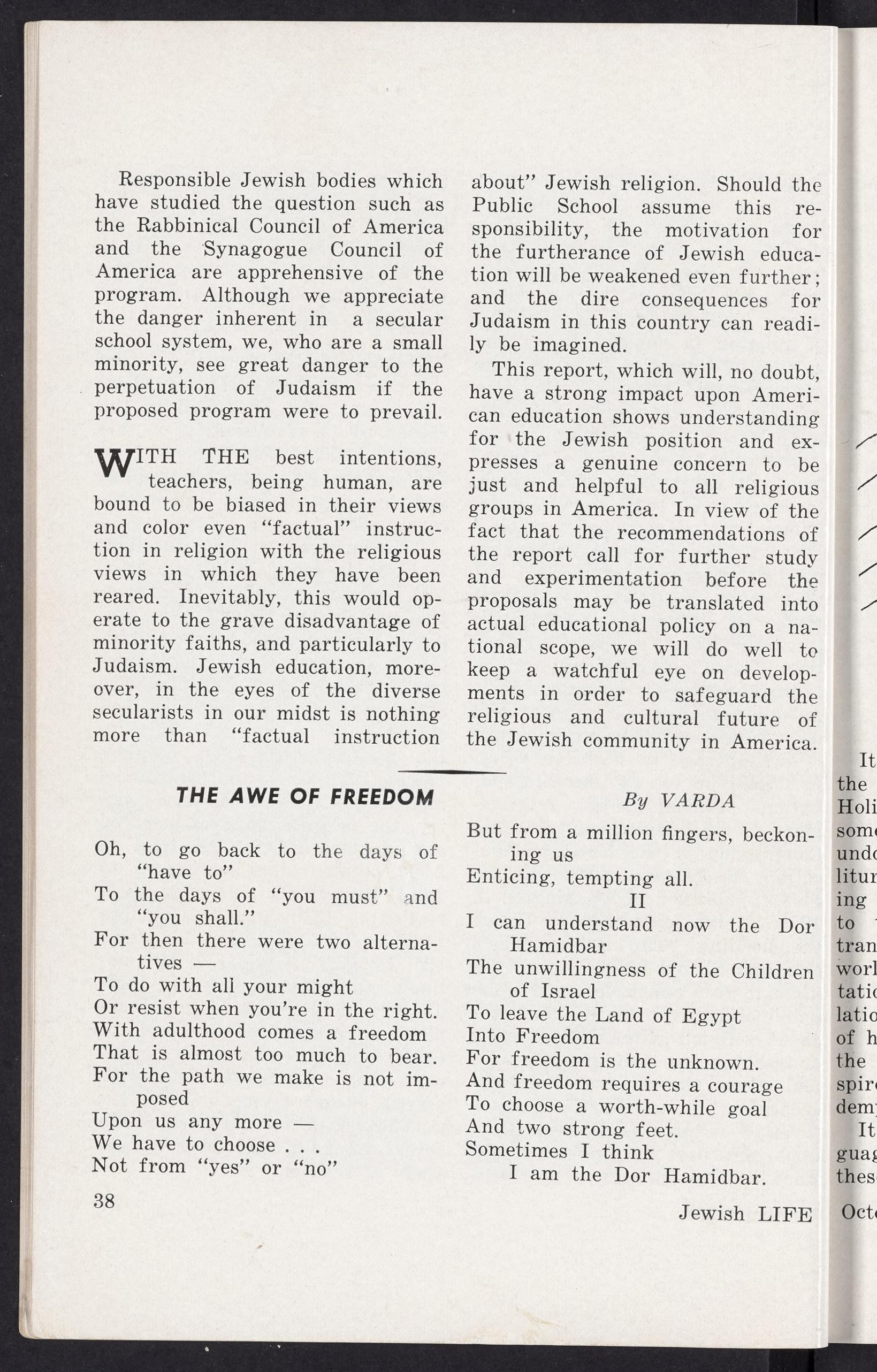







fare ter’s jymg tary sher )ted, )ects wish duty rean e in tnilitegy a on i iniwry ffort






as he understood






nat- from relishing the pleasant atmosvitallphere and enjoying the warmth of >arkIfedate, mature Jewish citizens;

^rk.jmay renovate their homes and buy d to tetter cars; but they remain for eastfell times, it seems, Boro Parkers mer
uni- Jinguished andkeeps alivethe Jewren, |sh community of Boro Park. javeB Boro Park, the old residents tell tive Jme, received its name by virtue of

Leof l ls loca45th ther iseth lanpital Zion rary lorroup
;heir MizDups •ried











a direct shipping service between Israel and East and South Africa, viaBijj banks was another favorable portent.






fact that the recommendations of B/ proposals may be translated into 1/ Holi

But from a million fingers, beckon- som< ing us und(
The unwillingness of the Children worl
Into Freedom of h Sometimes I think gua* Ofct(

jected in the poems of these sing-1hai ers, but the spirit of the wholel|ye: nation speaks through them andl(6C
Yisroel. Csi
The origin of the Piyyut wasltur formerly attributed to Yose benldre Yose, a Palestinian singer whojjut flourished in the first half of the|suc seventh century. The discovery oilha] the Genitzah in Cairo, however!a *
poetry arose much earlier. In fact||^er is found in thelSal Midrosh (Shir ha-Shirim Rabbahl^re
, the singers of theHLr sacred poems, had in the wonderful1^ and the Midroshim, with its manyl|j1€
tation, In reality, the Piyyut isllnd the continuation of the Agodah. Itl sjp€ is possiblethat the Singers actuallylbel read their poems at the services!rat and offered explanations to thelthr masses, while the scholars enjoyed^#I the mastery of the language, itslfor ornateness and the skill exhibitedljeai ters of the name of the poet asltioi well as those of his father’s name.!firs Eliezer ha-Kalir also uses rhyme.!Sh(
The second point of difference islmo that, while the Agodah quotes dif- lea< ferent views of individual scholars,!sue the Piyyut gives only the result,!Bee and by means of this form solidi- Poe liesviewsandfragments oflegends!EtI

*aiy||he line of poets
lallylf^half of Israel or 'icesHather enable Israel to speak syedM Eliezer ha-Kalir's poems bear, utedljeading motives. The first aim is
t asBtion, in his poems joined to the ime. first benediction preceding the nme.i$hema, called e isBmotive is the exaltation of the
larsj such as Yetziath Mitzrayim, or suit,(Redemption in the Future, in the lidi-J poems for Pesach;The Sukkah,the mds| Ethrog and the Lulov in the songs who(comP°siti<>ns for Shavuoth. But [FE October, 1953

ment tion, annu up v clain earth migh trum Lord his n right be te Th strai] avert whos the ! of Ii abov< confic twee] the ; heave taint; pray« three reyShof] ( motii favoi Patri child: anoth is no


fath< i Or cern< dealt Mali roth, twin the ! on tl whos an e] tried Abra tranc shith on tl from mine demp latioi place























































